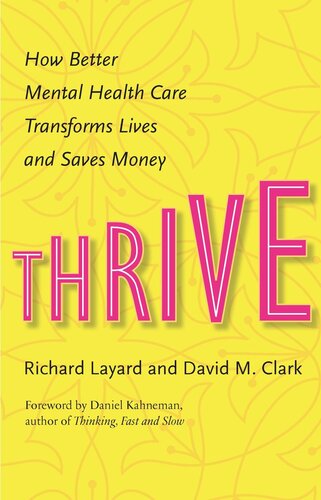

Most ebook files are in PDF format, so you can easily read them using various software such as Foxit Reader or directly on the Google Chrome browser.
Some ebook files are released by publishers in other formats such as .awz, .mobi, .epub, .fb2, etc. You may need to install specific software to read these formats on mobile/PC, such as Calibre.
Please read the tutorial at this link: https://ebookbell.com/faq
We offer FREE conversion to the popular formats you request; however, this may take some time. Therefore, right after payment, please email us, and we will try to provide the service as quickly as possible.
For some exceptional file formats or broken links (if any), please refrain from opening any disputes. Instead, email us first, and we will try to assist within a maximum of 6 hours.
EbookBell Team

0.0
0 reviewsMental illness is a leading cause of suffering in the modern world. In sheer numbers, it afflicts at least 20 percent of people in developed countries. It reduces life expectancy as much as smoking does, accounts for nearly half of all disability claims, is behind half of all worker sick days, and affects educational achievement and income. There are effective tools for alleviating mental illness, but most sufferers remain untreated or undertreated. What should be done to change this? In Thrive, Richard Layard and David Clark argue for fresh policy approaches to how we think about and deal with mental illness, and they explore effective solutions to its miseries and injustices.
Layard and Clark show that modern psychological therapies are highly effective and could potentially turn around the lives of millions of people at little or no cost. This is because treating psychological problems generates huge savings on physical health care, as well as massive economic savings through more people working. So psychological therapies would effectively pay for themselves, generating potential savings for nations the world over. Layard and Clark describe how various successful psychological treatments have been developed and explain what works best for whom. They also discuss how mental illness can be prevented through better schools and a better society, and the urgency of doing so.
Illustrating why we cannot afford to ignore the issue of mental illness, Thrive opens the door to new options and possibilities for one of the most serious problems facing us today.